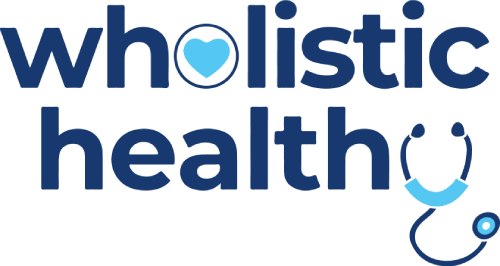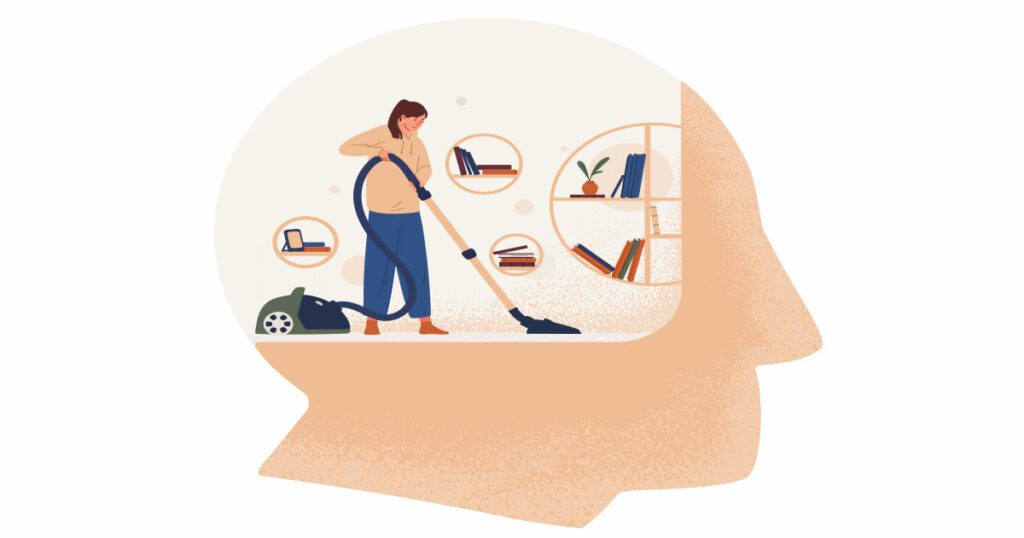Obsessive-compulsive disorder (OCD) is a complex and debilitating condition that affects millions of people worldwide. At first glance, it may seem like a straightforward anxiety disorder characterized by persistent and unwanted thoughts, fears, or doubts (obsessions) that lead to repetitive behaviors or mental acts (compulsions).
However, OCD is not just about being anxious or worried; it is a condition that affects multiple aspects of a person’s life, including their thoughts, emotions, behaviors, and relationships.
What is OCD, and how is it different from other anxiety disorders?
OCD is a type of mental disorder that belongs to the family of obsessive-compulsive and related disorders (OCRDs). It is characterized by the presence of obsessions or compulsions that are time-consuming (taking more than one hour per day), distressing, or interfering with daily functioning.
Obsessions are recurrent and persistent thoughts, images, or impulses that are unwanted, inappropriate, or irrational. They may involve themes such as contamination, harm, blasphemy, symmetry, or morality.
Compulsions are repetitive behaviors or mental acts that are performed in response to an obsession or according to rigid rules. They may involve cleaning, checking, counting, praying, arranging, or repeating words or phrases. The goal of compulsions is to reduce anxiety, prevent harm, or neutralize the obsession. However, compulsions are not always logical or effective, and they may actually increase anxiety and guilt in the long run.
OCD is often misunderstood and misdiagnosed as other types of anxiety disorders, such as generalized anxiety disorder (GAD), panic disorder (PD), or social anxiety disorder (SAD). These conditions share some similarities with OCD, such as fear, worry, or avoidance, but they also have some important differences. GAD is characterized by excessive and unrealistic worry about everyday events or activities without specific obsessions or compulsions.
PD is characterized by recurrent and unexpected panic attacks associated with a sense of impending doom or death and physical symptoms such as palpitations, sweating, or trembling. SAD is characterized by an excessive and irrational fear of situations or activities that involve social interaction, performance, or scrutiny, and avoidance or distress in those situations.
While OCD can co-occur with other mental disorders, such as depression, ADHD, or tic disorders, it is a distinct condition that requires its own assessment and treatment. A proper diagnosis of OCD should be based on a comprehensive evaluation of symptoms, history, context, and impact, using valid and reliable instruments, such as the Yale-Brown Obsessive Compulsive Scale (Y-BOCS) or the Diagn and Statistical Manual of Mental Disorders (DSM-5).
How can ketamine provide rapid relief from OCD?
Ketamine is a medication that has been used for more than 50 years as an anesthetic and analgesic agent in human and veterinary medicine. In the past decade, it has also been studied as a rapid-acting and innovative treatment for various mental health conditions, such as depression, PTSD, bipolar disorder, and OCD.
Ketamine works by inhibiting the activity of a brain chemical called glutamate, which is involved in the formation and maintenance of neural connections called synapses. Glutamate is also involved in the process of synaptic plasticity, which is the ability of synapses to change their strength and function in response to experience or environment.
Synaptic plasticity is thought to be abnormal in OCD, leading to the persistence and reinforcement of obsessions and compulsions.
Ketamine has been found to be an effective and safe treatment for OCD in both adults and children when administered in low doses and in a controlled and supervised setting, such as a clinic or a hospital. Studies have shown that ketamine can reduce the symptoms of OCD, such as obsessions and compulsions, as well as improve the quality of life, functioning, and cognitive flexibility of patients with OCD.
Ketamine can also enhance the effects of other medications, such as antidepressants, and can have a longer-lasting effect than other treatments, such as cognitive-behavioral therapy (CBT).
The mechanism of action of ketamine in OCD is still not fully understood, but it is thought to involve a rapid and transient change in the balance of neurotransmitters, such as glutamate and GABA, in the brain. Ketamine is also thought to have a direct effect on the immune system by reducing inflammation and oxidative stress, and an indirect effect on the gut-brain axis, by modulating the microbiome and the gut-brain peptides.
However, ketamine is not a cure-all nor a cure for OCD. Ketamine is a powerful and complex medication that requires careful monitoring, follow-up, and integration with other interventions. Ketamine is also a medication that carries certain risks, such as dissociation, hallucinations, and addiction, and it is not recommended for everyone.
Wholistic Health: The Best Place for a Person with OCD to Receive Ketamine Therapy
At Wholistic Health, we understand the complexity and the impact of OCD on the lives of our patients, and we offer a comprehensive and individualized approach to the assessment and treatment of OCD.
We use the latest and most evidence-based methods, such as the Y-BOCS, the DSM-5, and brain imaging, to evaluate the symptoms, the history, and the brain function of our patients, and we use the most effective and safe treatments, such as ketamine, to reduce the symptoms and the suffering of our patients.
We believe that ketamine can provide rapid relief from OCD, and we are committed to offering the best quality and the most innovative ketamine therapy for our patients in a comfortable and confidential environment. We work with a team of experienced and compassionate professionals who are dedicated to the well-being and recovery of our patients.
If you or a loved one is struggling with OCD and you are looking for a safe and effective treatment, please contact us today to schedule an appointment. We are here to help you, and we are the best place for a person with OCD to receive ketamine therapy.
Don’t hesitate to reach out to us at Wholistic Health. We are here to help you through your journey with OCD.

